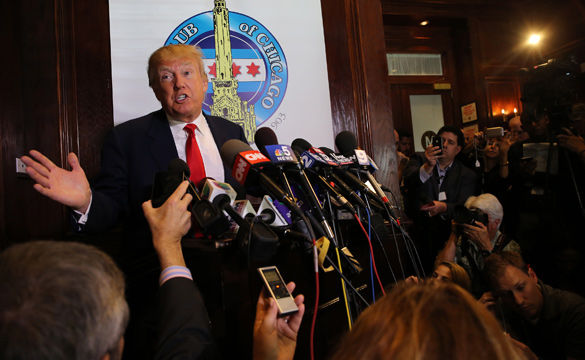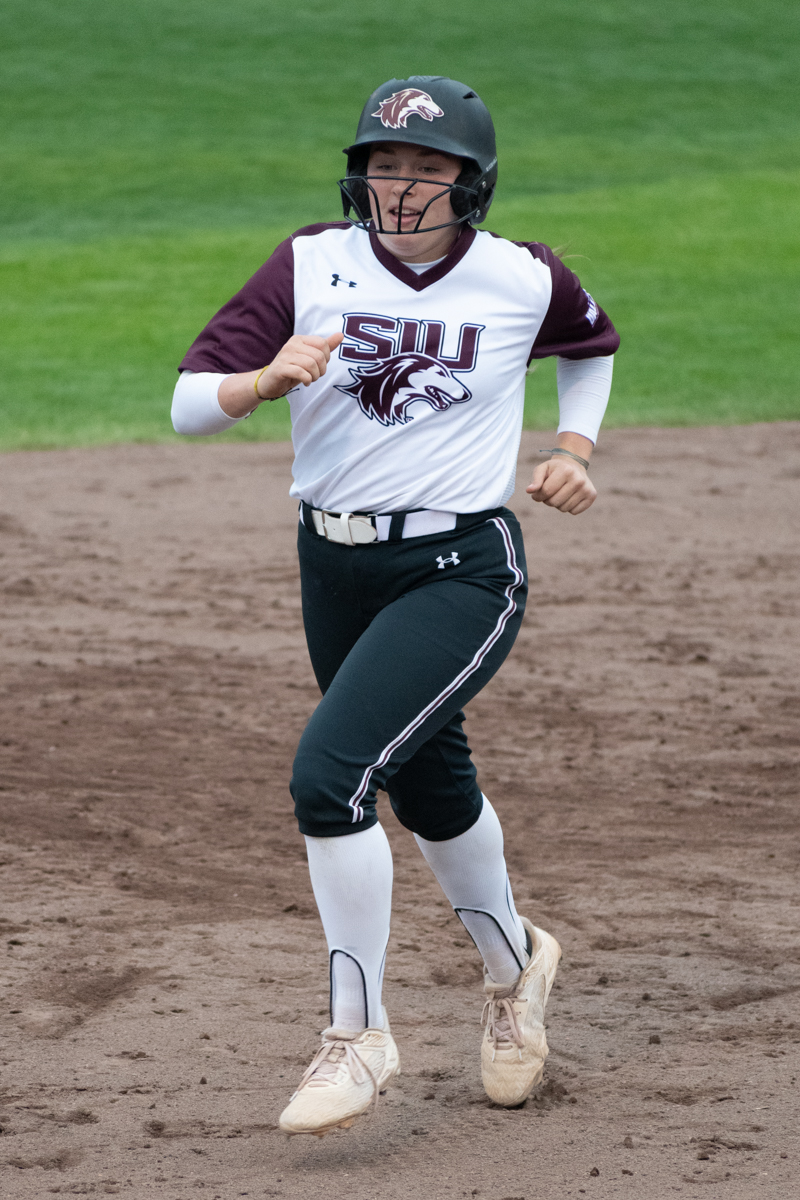Illinois Republicans worry about Trump effect down the ballot

March 7, 2016
Illinois Republican leaders already opposing Donald Trump’s presidential campaign are expressing cautious concerns over how his nomination could affect GOP chances in the fall, ranging from Sen. Mark Kirk’s re-election bid to Gov. Bruce Rauner’s attempt to pick up Democratic legislative seats.
“I think Trump at the top of the ticket hurts the brand,” said former state GOP chairman Pat Brady, who is backing Ohio Gov. John Kasich. “Is it good? No. It’s not good for anybody.”
Illinois is traditionally a Democratic state in presidential election years and shows little signs of changing, even without home-state President Barack Obama’s name on top of the ballot. That puts pressure on Republican hopes to grow their November numbers even before considering the impact of Trump, who will try to add to his leading delegate count in the March 15 Illinois primary election.
Advertisement
Already two Republican congressmen — Bob Dold of Kenilworth and Adam Kinzinger of Channahon — have denounced Trump, with Dold vowing he won’t support the Republican presidential front-runner “now and I will not support him should he move on” to win the nomination.
Dold represents a North Shore swing district that in the past has gone Republican in off-presidential years and Democratic in White House election years. The 10th District race is considered by both parties to be among the nation’s most expensive congressional contests.
In a recent CNN interview, Dold said a Trump nomination won’t necessarily jeopardize his re-election bid.
“I’ve been focusing on the constituents and I trust I will be judged on my record,” he said.
Of larger concern is Kirk. He’s seeking a second term in the Senate against nominal primary opposition and already is considered to be among the most politically vulnerable Republicans in the country even before the prospect of a Trump nomination.
“Sen. Kirk is not endorsing in the Republican primary. He is focused on his work in Illinois and his campaign for re-election,” Kirk’s campaign said in a statement. “The GOP nomination is a long and fluid process right now and we are not going to try to decrypt a very hazy and cloudy crystal ball.”
Kirk denounced Trump last July, about a month after Trump announced his presidential candidacy and suggested Mexico was sending criminals and rapists across the U.S. border.
Advertisement*
“In a typical Chicago way, to my Mexican-American friends, I would say, ‘Donald Trump, callate’ — shut up,” Kirk said at the time.
But two of the three Democrats vying for the primary nomination for Kirk’s Senate seat — U.S. Rep. Tammy Duckworth of Hoffman Estates and former Chicago Urban League CEO Andrea Zopp — already are criticizing Kirk for not saying whether he would back Trump as the GOP nominee.
Duckworth’s campaign said, “Illinois voters should take Kirk’s silence as a tacit endorsement of Donald Trump and his offensive platform.” Zopp’s campaign called Trump a “dangerous leader,” and said, “Kirk needs to let the people know what side of history he will be on.”
But Brady, the former Republican chairman, said Kirk’s lengthy record as a 10-year congressman before winning election to the Senate in 2010, as well as a history of being a top GOP vote-getter, makes him “a guy who almost goes against the trend” of being affected by Trump.
Instead, Brady argued, “I would be concerned about overall Democratic turnout against Kirk more than I would be about who is at the top of our ticket.”
Greg Baise, the president and CEO of the Illinois Manufacturers’ Association and a longtime influential Republican, said he believed it was too early to speculate about the impact of a Trump nomination on down-ballot races like Kirk and other Republicans.
“We have entered into what I think is a territory that we have not seen, where there’s been these big realignments that go on. Now does Donald Trump have the ability to lead it?” asked Baise, who like much of the state’s GOP establishment had backed former Florida Gov. Jeb Bush, who dropped out last month.
“The people who have been around this whole thing have been sent a big message by the regular voters, that 35 to 40 percent of the Republican Party is really irritated,” he said. Still, Baise cautioned, “by September, when people really make up their mind on voting for president, it’s a whole different thing.”
Baise and Chicago businessman Ron Gidwitz, another longtime GOP donor, also questioned what voter turnout would be like in the fall if Trump is the nominee. They noted increased Republican turnout in several early primary and caucus states.
“I don’t know what happens in the general election. Do all the disaffected voters who really don’t much care, are they really motivated to show up and thumb their nose at the establishment? It’s possible,” said Gidwitz, who initially backed Bush and is now supporting Florida Sen. Marco Rubio.
Turnout also is an important factor in state legislative races, where Gov. Rauner and his allies plan to use their wealth to try to erode the supermajorities that Democrats hold in the Illinois House and Senate. Rauner hasn’t said much about the primary, saying he’s staying out of it and calling it “a very wild process” when Trump’s name came up.
All 118 House seats and 40 of 59 Senate seats are up for election. But Brady said he believes legislative contests, particularly Downstate, are more immune to any top-of-ticket influences due to their local nature.
“I’m not saying it’s great that Trump is at the top of the ticket. But you go to some of these state representative races, you can walk around the district and win it. I’m not as gloom and doom on it,” he said.
But with Springfield showing much of the same political dysfunction that has normally been associated with Washington, voters unhappy with the status quo may take it out on local incumbents.
“People are really angry and my sense is they’re angry at Republicans, independents and Democrats because they feel that they’re put upon by the ruling class,” Gidwitz said.
Chicago-area Republicans will get an up-close look at Trump on Friday, when he hosts a rally at the University of Illinois at Chicago. The timing of Trump’s event conflicts with an already-scheduled Illinois Republican Party fundraising dinner at the Palmer House Hilton honoring Rauner. That one features a Trump rival for the GOP presidential nomination, Texas Sen. Ted Cruz.
___
(c)2016 the Chicago Tribune
Visit the Chicago Tribune at www.chicagotribune.com
Distributed by Tribune Content Agency, LLC.
Advertisement








